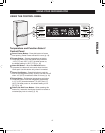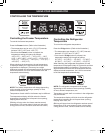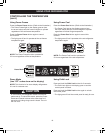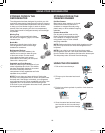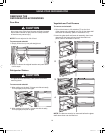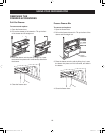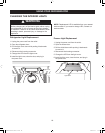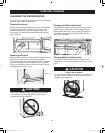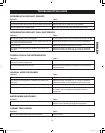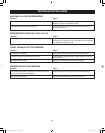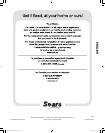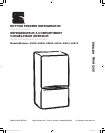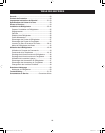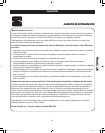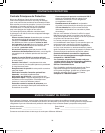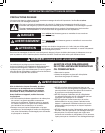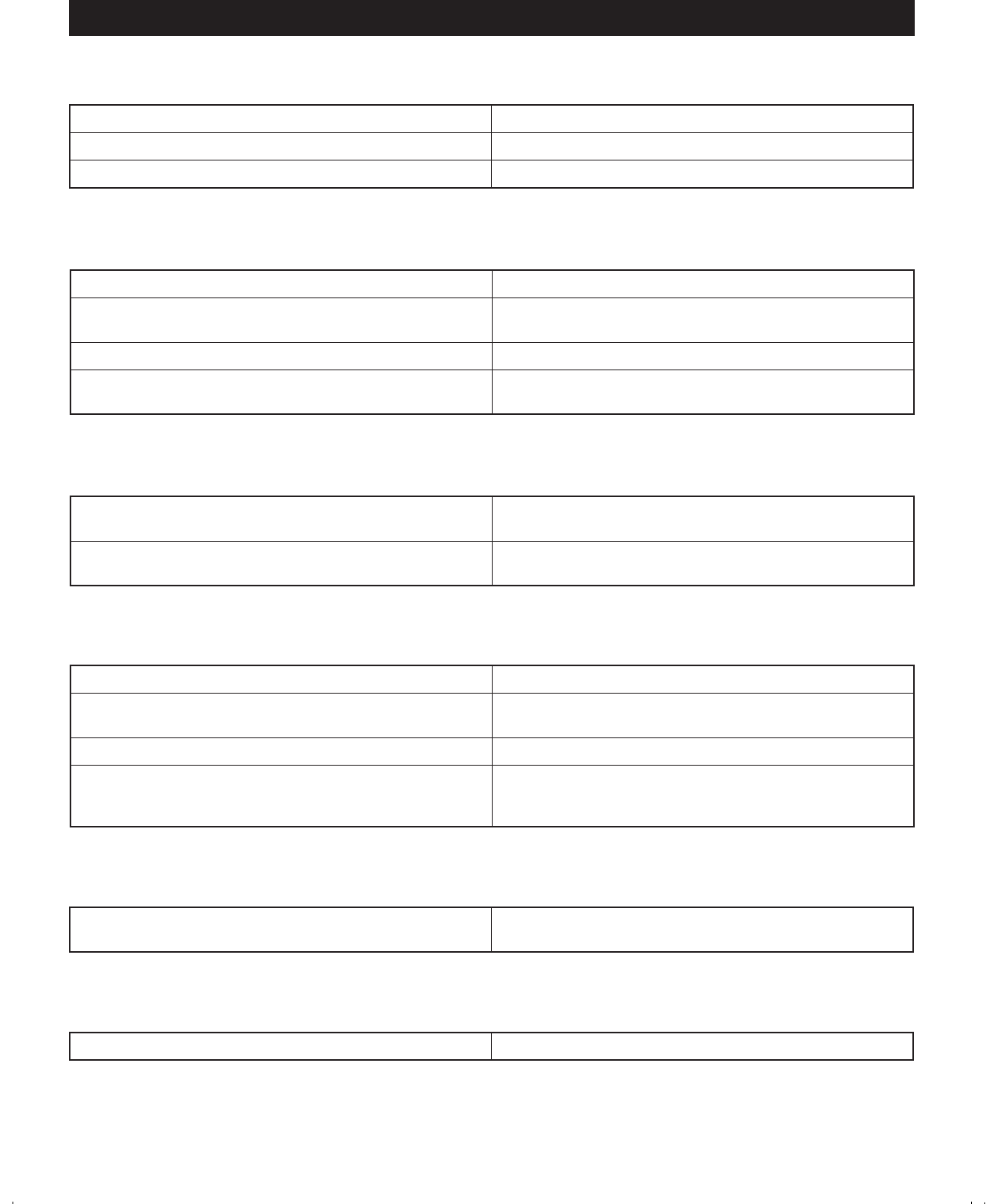
25
ENGLISH
TROUBLESHOOTING GUIDE
REFRIGERATOR DOES NOT OPERATE
Check if... Then...
The power supply cord is unplugged. Firmly plug the cord into a live outlet with proper voltage.
A household fuse has blown or circuit breaker has tripped. Replace the fuse or reset the circuit breaker.
The refrigerator is in defrost cycle. Wait about 30 minutes for the defrost cycle to end.
REFRIGERATOR DOES NOT CHILL SUFFICIENTLY
Check if... Then...
The power supply cord is unplugged. Firmly plug the cord into a live outlet with proper voltage.
The fridge temperature control on the display panel is not
set to the correct temperature.
Reset the temperature control to a lower temperature.
A door is ajar. Make sure the doors are properly closed.
The back of the refrigerator is located too close to the
rear wall.
Make sure there is at least 2 in. (5.1 mm) of clearance
between the back of the refrigerator and the rear wall.
FROZEN FOOD IN THE REFRIGERATOR
Check if... Then...
The fridge temperature control on the display panel is not
set to the correct temperature.
Reset the temperature control to a warmer temperature.
The room temperature is too low. Make sure the refrigerator is installed in a temperature-
controlled room.
UNUSUAL NOISE OR SOUNDS
Check if... Then...
The refrigerator is level and stable. Level and secure the refrigerator.
The back of the refrigerator is located too close to the
rear wall.
Make sure there is at least 2 in. (5.1 mm) of clearance
between the back of the refrigerator and the rear wall.
Anything was dropped behind or under the refrigerator. Remove the dropped object.
A “ticking” sound is heard from inside the refrigerator. It is normal and occurs when various accessories contract
or expand due to temperature changes inside the
refrigerator.
WATER BUBBLING SOUNDS
Check if... Then...
A water bubbling sound is heard in the refrigerator. This is normal. The bubbling comes from the refrigerator
coolant liquid circulating through the refrigerator.
CABINET FEELS WARM
Check if... Then...
Part of the cabinet feels warm on the surface. This is normal.
DA99-01921A (EN-1).indd 25 2010.3.16 1:7:55 PM



